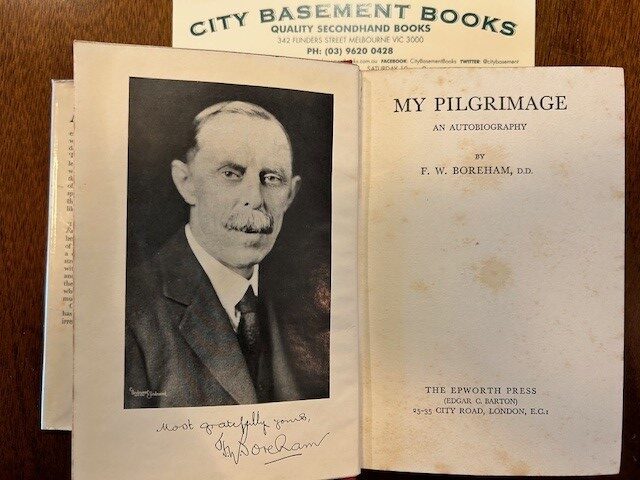F.W. Boreham (d.1959) was a preacher and writer in New Zealand. After reading some of his articles, I ordered his autobiography from a used book store in Melbourne, AU. When it arrived, I discovered his signature inside. I looked on the reverse side of the page and saw the indentations from his pen. I compared this signature to images I found online and it clearly matched. The book was not advertised as autographed, so no reason exists for fraud. I can only conclude that this book is authentic.
We have reasons to reach the same conclusion about the Bible. The evidence of its authenticity is far more extensive than what I just cited for Boreham’s book. It matters because the Bible tells us what is true, not just what is religious or mythical. “Christianity, if false, is of no importance,” C.S. Lewis wrote, “and if true, of infinite importance. The only thing it cannot be is moderately important.” Neither can the Bible be of moderate importance.
I have heard friends utter some version of, “Well the Bible was written by men, so it can’t be any more reliable than my own thoughts about God.” That’s like saying, “My thoughts about F.W. Boreham’s life are just as reliable as his autobiography.” What if the men who did the writing had firsthand information which we do not? Could not God have inspired 40 different writers over 1500 years to explain a coherent, true story, authenticated by prophecies that have come true? (See The Case for Christ, Strobel.)
The Bible is integrally connected to human history in time and place. This connection is an invitation to investigate its reliability. In fact, archeology does just that. For example, historians were skeptical about King David until 2023, when Gila Cook discovered his name inscribed in an ancient stone artifact at Tel Dan. The Bible says David was a human ancestor to Jesus, the Christ (Psa. 89:3-4).
Other scientists have also authenticated the Bible, however reluctantly. By 1931, Einstein agreed with Hubble that the universe had a “beginning.” But scientists like Hoyle continued to explain away the data because of the obvious theistic implications. “In the beginning” the Bible says (Gen. 1:1, John 1:1).
I am convinced that “men moved by the Holy Spirit spoke from God” (1 Pet. 1:21). The Bible shows the arc of human history from beginning to end. It reveals how you can know and trust God. It explains where you came from, what’s wrong with the world, how God restores what is broken, and what is your purpose and destiny. Those are ultimate questions which are quite unavoidable.
The Bible’s simple, exciting, personal message is that God who created the universe loves you and invites you into a relationship with Himself. You can read it in His authentic book.

